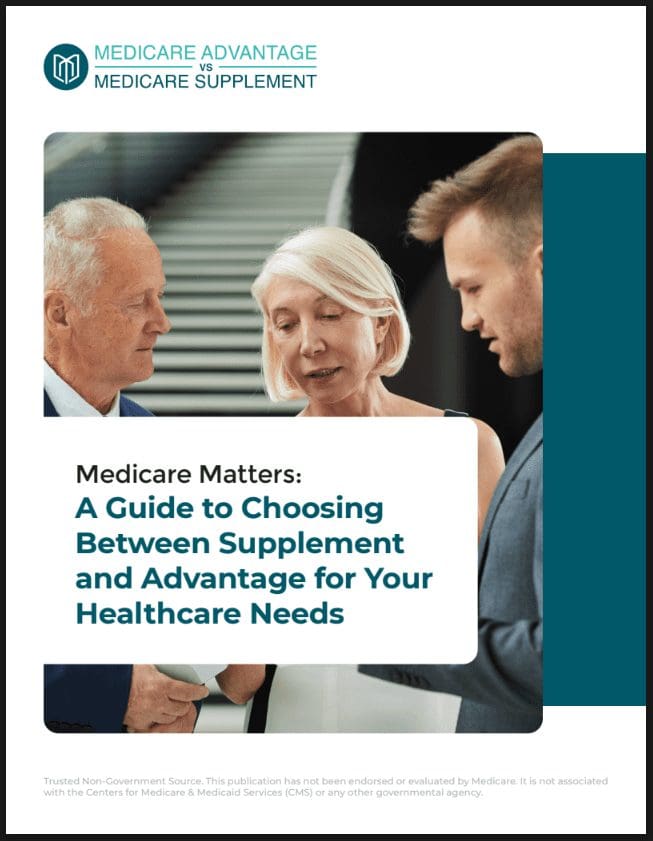Key Takeaways:
- Medicare enrollment periods are strict, and missing them can lead to long-lasting financial penalties and gaps in healthcare coverage.
- It’s essential to act during your Initial Enrollment Period to avoid costly mistakes and take full advantage of your Medicare benefits.
Medicare Enrollment Periods Aren’t as Flexible as You Think—Here’s Why You Need to Act Fast
When approaching Medicare age, many assume they have plenty of time to enroll or that there are various opportunities to sign up without consequences. Unfortunately, that’s not the case. Medicare’s enrollment periods are strict, and failing to enroll on time can have lasting financial and healthcare impacts. While you may have heard about the different enrollment windows, such as the Initial Enrollment Period (IEP) or the Medicare Open Enrollment Period, it’s crucial to understand that these periods are not as flexible as they might seem.
Missing your enrollment window can result in permanent penalties and delays in coverage, leaving you without crucial healthcare when you need it most. In this article, we’ll explain why you need to act fast when it comes to Medicare enrollment and outline the key periods you need to know.
What Is the Initial Enrollment Period (IEP)?
The Initial Enrollment Period (IEP) is your first opportunity to sign up for Medicare. This seven-month window surrounds your 65th birthday, beginning three months before the month you turn 65 and ending three months afterward. This is the ideal time to enroll because it allows your coverage to begin smoothly, and it helps you avoid any penalties associated with late enrollment.
Why You Can’t Afford to Miss the IEP
If you fail to enroll in Medicare during your IEP, you risk facing penalties that last for as long as you have Medicare. For example, the Part B penalty increases your premium by 10% for each 12-month period that you were eligible but didn’t sign up. This penalty will apply for the rest of your time on Medicare, making healthcare more expensive than it needs to be. Additionally, you’ll have to wait until the General Enrollment Period (GEP) to sign up, which could delay your coverage.
Similarly, delaying enrollment in Medicare Part D (prescription drug coverage) results in a 1% penalty for every month you went without coverage. Like the Part B penalty, this increase in your monthly premium lasts for the rest of your life.
The General Enrollment Period (GEP): Limited Flexibility
If you miss your Initial Enrollment Period, the General Enrollment Period (GEP) offers a second chance to sign up. The GEP runs from January 1 to March 31 each year. However, enrolling during this period is not ideal because your coverage won’t begin until July 1 of that year. This means you could be left without essential healthcare coverage for several months, which could be risky, especially if you have ongoing health issues.
Moreover, enrolling during the GEP doesn’t exempt you from late penalties. You’ll still face higher premiums for both Part B and Part D if you delayed enrollment beyond your IEP.
Why the GEP Isn’t a Solution for Everyone
The General Enrollment Period is designed as a safety net for those who missed their IEP, but it comes with significant drawbacks. Aside from the late penalties, the delayed start of coverage (July 1) leaves a critical gap in healthcare services. For individuals who need regular care or prescription medications, this period without coverage could lead to high out-of-pocket costs.
Special Enrollment Period (SEP): Only for Specific Circumstances
A Special Enrollment Period (SEP) provides some flexibility for individuals who missed their IEP due to specific life events, such as having employer-sponsored insurance. If you had qualifying health coverage through your employer (or your spouse’s employer) when you became eligible for Medicare, you may qualify for an SEP.
Common Reasons for Qualifying for an SEP
- Employer-sponsored coverage: If you delayed enrolling in Medicare because you had health insurance through an employer, you can sign up during an SEP once your employer coverage ends. This SEP lasts for eight months following the end of your job-based coverage, allowing you to enroll without penalties.
- Moving out of your plan’s service area: If you move to a new area where your current Medicare Advantage Plan or Part D plan doesn’t operate, you qualify for an SEP to change your plan.
- Other life events: Certain other life changes, such as losing Medicaid eligibility or being released from incarceration, may also trigger an SEP.
While SEPs offer some flexibility, they’re only available to individuals who meet very specific criteria. If you don’t qualify for an SEP, you’ll need to wait for the General Enrollment Period, with the penalties and delayed coverage that come with it.
The Medicare Open Enrollment Period (OEP)
The Medicare Open Enrollment Period (OEP) runs from October 15 to December 7 each year. During this period, you can make changes to your existing Medicare coverage, such as switching from Original Medicare to a Medicare Advantage Plan or changing your Medicare Part D prescription drug plan.
Who Should Use the Open Enrollment Period?
The OEP is not for first-time enrollees. Instead, it’s designed for those who are already on Medicare and want to adjust their coverage. For example, if you realize your current prescription drug plan isn’t covering all the medications you need or your Medicare Advantage Plan no longer fits your healthcare needs, you can make changes during this period. The changes you make will go into effect on January 1 of the following year.
Why the Medicare Advantage Open Enrollment Period (MA OEP) is Key for Advantage Plan Holders
For those enrolled in a Medicare Advantage Plan, the Medicare Advantage Open Enrollment Period (MA OEP) provides an opportunity to make changes to your plan. This period runs from January 1 to March 31 and allows you to:
- Switch from one Medicare Advantage Plan to another.
- Drop your Medicare Advantage Plan and return to Original Medicare.
Like the General Enrollment Period, any changes made during the MA OEP will take effect on July 1. However, it’s important to note that this period is only available to those already enrolled in a Medicare Advantage Plan and cannot be used to sign up for Medicare for the first time.
The Consequences of Missing Medicare Deadlines
Missing any Medicare enrollment period can result in both financial penalties and gaps in coverage. These consequences can have a significant impact on your healthcare costs and access, especially if you rely on regular medical care or prescription medications.
Financial Penalties
One of the most important reasons to act fast during your enrollment period is to avoid lifelong financial penalties. Both Part B and Part D penalties increase over time and remain in effect for as long as you have Medicare. While these penalties may seem small at first, they can significantly raise your overall healthcare costs over time.
Gaps in Healthcare Coverage
Another critical issue with missing enrollment deadlines is the potential for gaps in your healthcare coverage. If you don’t enroll on time, you could be left without Medicare coverage for months, which could leave you paying out of pocket for medical services or prescriptions. In the event of a medical emergency or an unexpected health issue, these gaps can result in substantial medical bills.
How to Stay on Top of Medicare Enrollment Deadlines
The best way to avoid missing Medicare deadlines is to prepare in advance. Here are a few tips to help you stay on top of your enrollment:
-
Mark Your Calendar: Whether it’s your Initial Enrollment Period, Open Enrollment Period, or a Special Enrollment Period, mark these dates on your calendar well in advance.
-
Review Your Coverage Annually: Even if you’re already enrolled in Medicare, it’s a good idea to review your coverage every year during the Open Enrollment Period to ensure your plan meets your current healthcare needs.
-
Consult a Licensed Insurance Agent: If you’re unsure about which enrollment period applies to you or what your options are, a licensed insurance agent can provide personalized advice and help you avoid costly mistakes.
Stay Informed to Protect Your Healthcare
Enrolling in Medicare at the right time is crucial for avoiding penalties and ensuring continuous healthcare coverage. The enrollment periods may seem flexible, but they come with strict deadlines and consequences for missing them. By staying informed about your Medicare enrollment options and acting fast, you can protect your health and your wallet.
Making the Most of Your Enrollment Period
Understanding Medicare’s enrollment periods is the first step toward securing your healthcare coverage. The key is to act quickly during the designated windows, whether it’s your IEP, OEP, or SEP. Delaying enrollment only leads to unnecessary penalties and coverage gaps, so plan ahead and take control of your Medicare enrollment.








